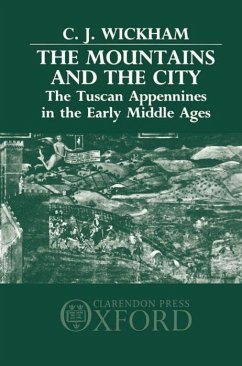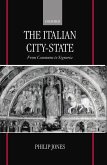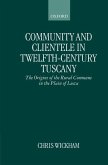This work is the winner of the American Historical Association Marraro Prize, 1988. "The Mountains and the City" is a rare discussion in English of the history of a region of Europe, a genre common in other countries but undeveloped in Britain. The book deals with two mountain valleys in Tuscany from the eight to the twelfth century, with some examination of their future progress into the sixteenth. It charts their internal social and economic development and their links with the emerging world of the Italian city states. The importance of the book is in its stress on the small-scale society of the mountains; on the relation of local society to its geographical environment; and, above all, in its concern to see society from below, through the activities of local people, rather than through the interests of their masters. In its focus on local interaction, this is one of the few anthropological studies of medieval history that has yet been written.
One of the few anthropological studies of medieval history ever to be written, this book charts the internal social and economic development of two mountain valley societies in Tuscany from the 8th to the 12th century. Linking Garfagnana and Casentino with the emerging world of Italian city states, the author explores society from below, through the activities of the local people, rather than through the interests of their masters.
Hinweis: Dieser Artikel kann nur an eine deutsche Lieferadresse ausgeliefert werden.
One of the few anthropological studies of medieval history ever to be written, this book charts the internal social and economic development of two mountain valley societies in Tuscany from the 8th to the 12th century. Linking Garfagnana and Casentino with the emerging world of Italian city states, the author explores society from below, through the activities of the local people, rather than through the interests of their masters.
Hinweis: Dieser Artikel kann nur an eine deutsche Lieferadresse ausgeliefert werden.








